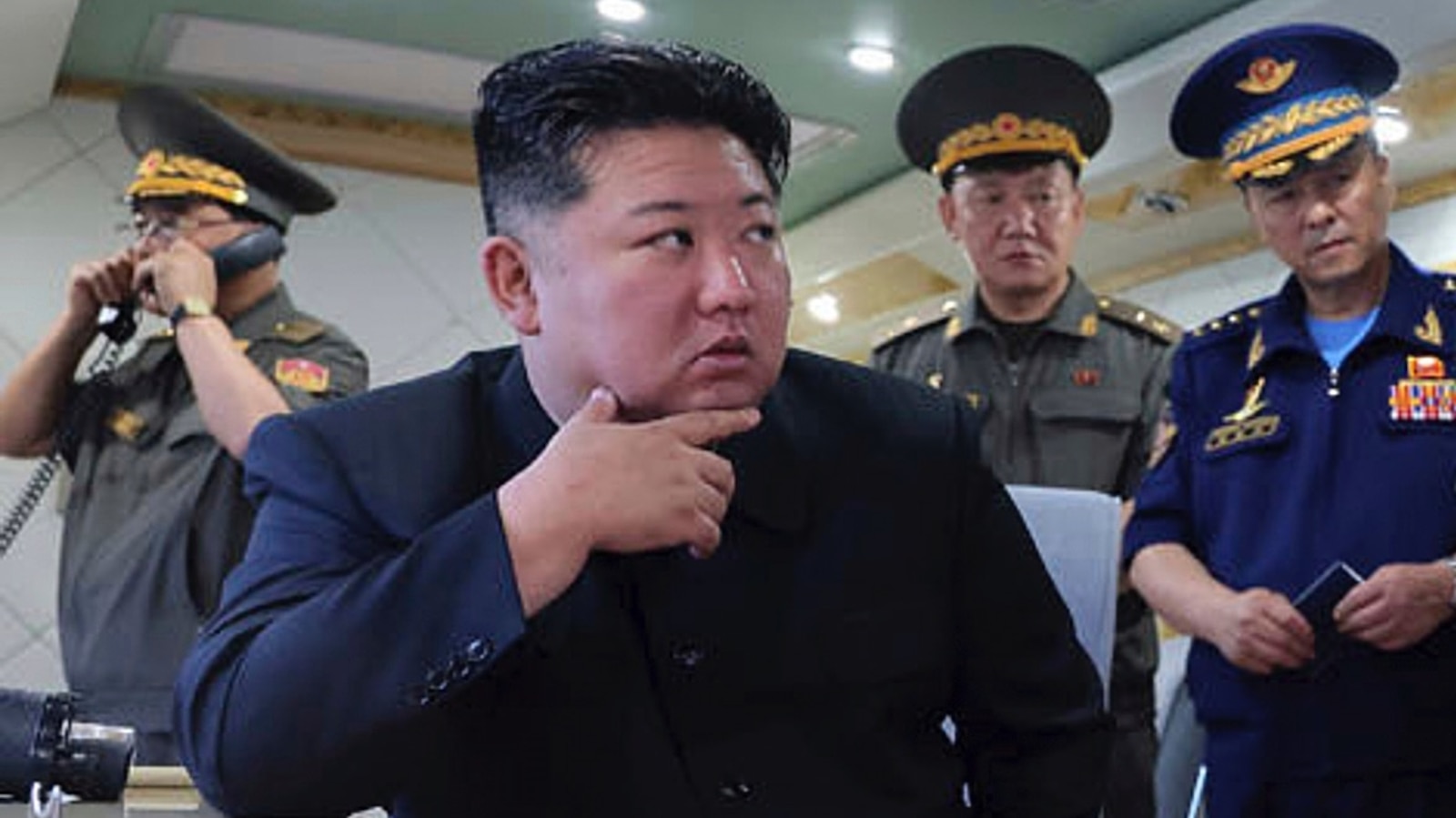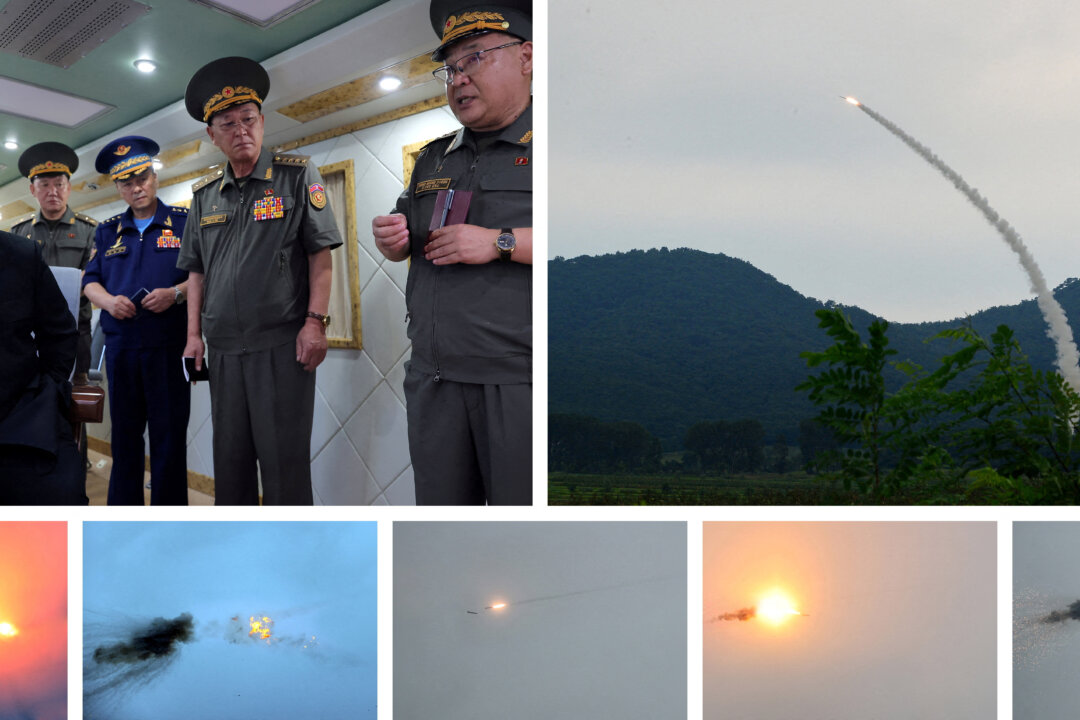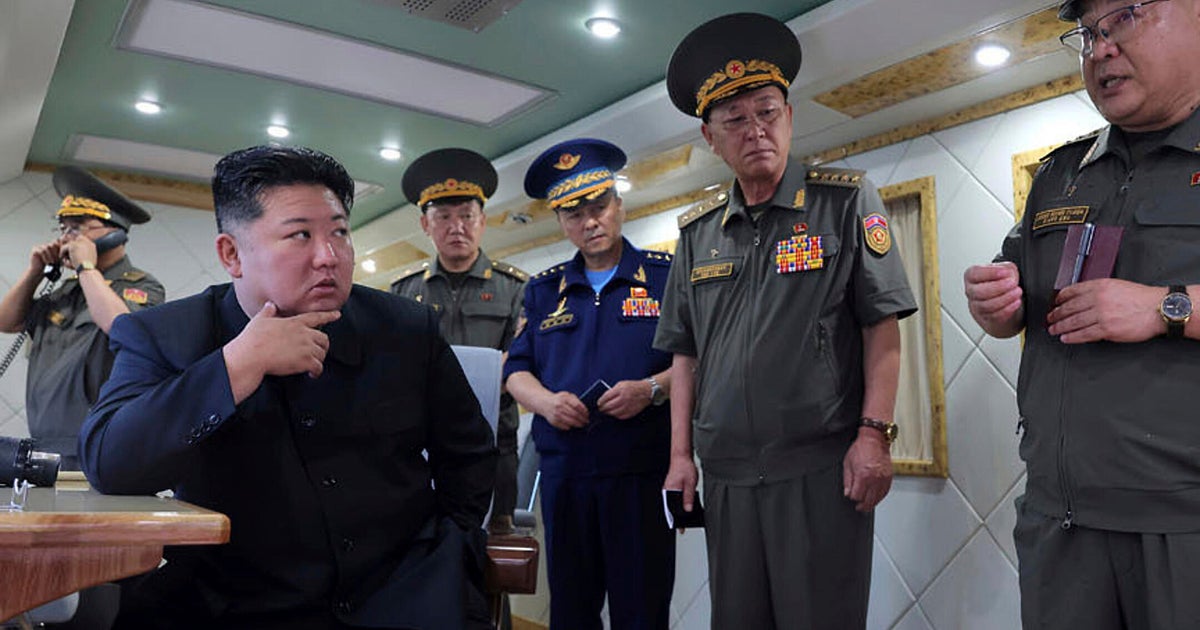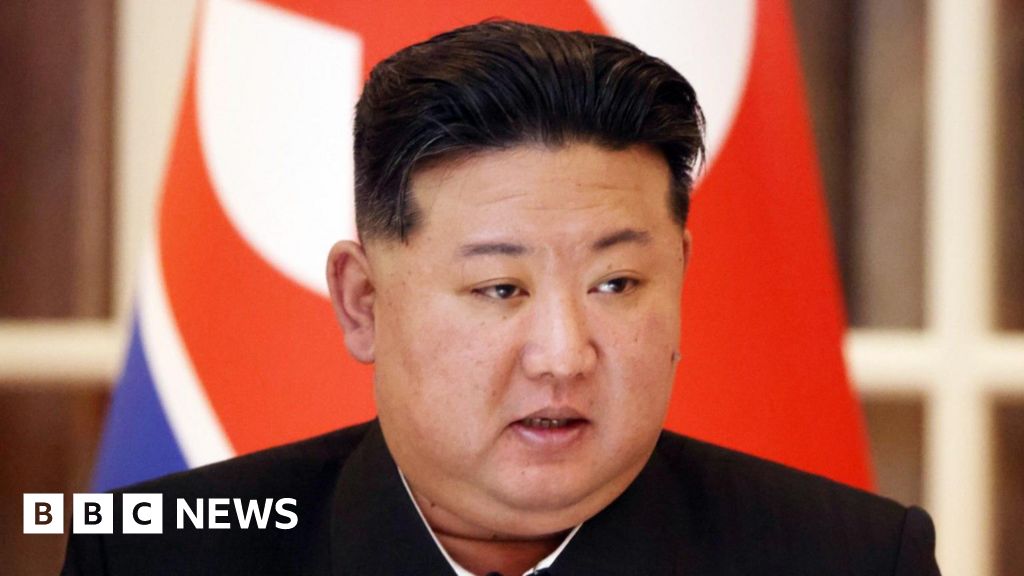North Korea Tests New Air Defense Missiles Amid Border Tensions and US-South Korea Drills
Kim Jong Un oversaw North Korea's new air defense missile tests, boasting superior combat capability. This followed a border crossing and his condemnation of US-South Korea drills.
Subscribe to unlock this story
We really don't like cutting you off, but you've reached your monthly limit. At just $5/month, subscriptions are how we keep this project going. Start your free 7-day trial today!
Get StartedHave an account? Sign in
Overview
- Kim Jong Un oversaw North Korea's test-firing of new air defense missiles, which state media reported possess superior combat capability and unique technology, enhancing the nation's defensive posture.
- The missile tests followed an incident where North Korean troops briefly crossed the inter-Korean border, prompting warning shots from South Korean forces, highlighting escalating regional tensions.
- North Korea reported its new air defense missiles demonstrated a fast response to aerial threats, including attack drones and cruise missiles, showcasing their advanced capabilities effectively.
- Kim Jong Un condemned ongoing joint military drills between the United States and South Korea, labeling them "most hostile and confrontational" towards North Korea's sovereignty.
- Concerns have been raised regarding North Korea potentially acquiring Russian missile technology, which could further strengthen its nuclear-armed military capabilities and regional influence.
Report issue

Read both sides in 5 minutes each day
Analysis
Center-leaning sources frame North Korea's missile test as a clear act of provocation, emphasizing its expanding military capabilities and defiance of international calls for diplomacy. They consistently link the test to ongoing US-South Korea joint drills, recent border tensions, and North Korea's deepening military alliance with Russia, portraying a regime actively challenging regional stability and international norms.
Articles (7)
Center (4)
FAQ
North Korea tested two upgraded surface-to-air missiles with superior responsiveness against aerial threats such as drones and cruise missiles, demonstrating fast response and advanced technology features.
The tests were likely a response to ongoing US-South Korea joint military drills and regional tensions, including a recent border crossing by North Korean troops and evolving security dynamics influenced by conflicts like those in Ukraine and Israel.
Kim Jong Un condemned the joint US-South Korea military drills as the 'most hostile and confrontational' acts against North Korea's sovereignty.
Reports suggest that North Korea may have received technical support and missile technology from Russia, especially following Russia's involvement in the Ukraine conflict, which could have enhanced North Korea's missile capabilities.
The missile tests reflect North Korea's ongoing efforts to strengthen its air defense systems as part of its evolving ballistic missile strategy and nuclear deterrence capabilities, including maintaining multiple missile operating bases not disclosed in denuclearization talks.
History
- 2M

 4 articles
4 articles





